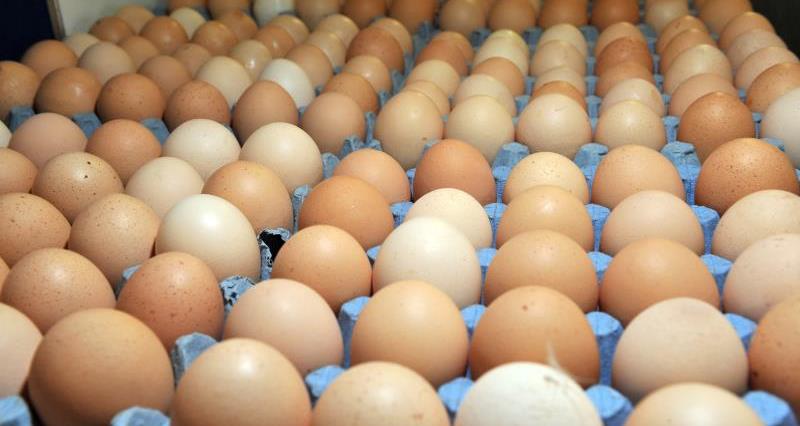The NFU has said retailers must give their suppliers more clarity on timelines and importantly, what will replace the current production system. Currently 40% of shoppers buy eggs from enriched cage systems.
A series of wholesalers and independents have made announcements joining the decisions made by Aldi, Tesco, Iceland, Morrisons, Sodexo, Asda and Lidl to go cage free by 2025. Their decision will mean the need to look for alternative production methods which will force the egg industry into its biggest change since the introduction of enriched cages in 2012; a move which then cost farmers in excess of £400m.
From Iceland...
Iceland has announced plans to end the sale of eggs from caged hens in its UK stores by 2025. This follows customer feedback and extensive consultations with the company’s egg suppliers, which have confirmed the feasibility of moving entirely to alternative barn and free range egg production methods within this timescale.
Iceland Joint Managing Director Nigel Broadhurst said: "Iceland has always believed in doing the right thing: our brand stands for high quality food that is produced both humanely and sustainably. In the 1980's we were the first UK supermarket to remove all artificial colours, flavours and non-essential preservatives from our own brand products. In the 1990's we led the way in banning mechanically recovered meat and GM ingredients. Today it is clear that our customers would prefer to buy eggs from non-caged hens, so long as we can deliver these without compromising the outstanding value they expect from us. Having consulted with our egg suppliers, I am confident that we can achieve this by 2025 – and if it proves feasible to complete the changeover sooner than that, we certainly will."
From Lidl...
Lidl UK has announced it will phase out the sale of shell eggs from caged hens from 2025, as part of its continued commitment to responsible and sustainable sourcing.
In the meantime, Lidl will work closely with all its egg suppliers to ensure that its pledge will have no detrimental effect on their businesses. Having already supported British egg producers to make a significant investment to transition to enriched caged systems in 2012, this latest initiative is designed to continue to put both improving animal welfare and nurturing strong and secure relationships with its valuable partners at the heart of its supply chain.
Lidl continues to source its products as locally as possible, working closely with the National Farmers Union to engage as sustainably as possible with British farmers, while maintaining strict animal welfare standards.
Ryan McDonnell, commercial director at Lidl UK said: “As a responsible retailer, we are committed to ensuring that the highest standards are met and maintained across our supply chain. Our pledge to work closely with our UK suppliers to phase out the sale of shell eggs from caged hens also underlines our understanding of our customers’ changing expectations, as shoppers increasingly search for responsibly sourced high quality British produce at the best value.”
From Asda…
An Asda spokesperson said: "In line with our parent Walmart, our ambition is to phase out eggs from caged hens by 2025 in a way that supports a sustainable supply chain and that also enables us to continue to offer our customers the choice and value that they expect from Asda.
"In the meantime, customers can be assured that we always work closely with industry bodies to ensure best practice in farming and with all our farmers to maintain strict animal welfare standards.
"The vast majority of Asda eggs are already Free Range and all the flocks are inspected daily under the care of a responsible veterinary surgeon. Our eggs carry the Lion Code mark, meaning our customers can trust they are laid on British farms, by British hens that are fully traceable and vaccinated against salmonella."
From Tesco…
Tesco has announced that it is to stop sourcing eggs from caged hens by 2025. This comes after the retailer conducted a detailed review of its egg sourcing strategy, which included consultation with suppliers, industry experts and other key stakeholders.
Working with supplier partners, Tesco will transition to 100% cage-free eggs, moving to alternative sourcing methods, such as barns, free range and organic.
At present, some 43% of the 1.4 billion eggs sold by Tesco each year come from caged eggs, also known as enriched colonies. Some 57% of eggs sold by Tesco in the UK come from Free Range or Organic methods.
Matt Simister, Tesco’s commercial director for fresh food said: “Our decision on caged hens is one of a number of Tesco initiatives designed to ensure sustainable sourcing, and improve animal welfare.
“We carried out an extensive and collaborative review with our suppliers and key industry experts to help us work through how best we can move to 100% cage-free eggs. This will ensure we give our supplier partners the certainty they require, to make the significant and necessary investments needed for the new farming systems.”
Veli Moluluo, managing director of Noble Foods Ltd, Tesco’s largest supplier of eggs, said: “We have already started investigating new methods of egg production, and the commitment from Tesco to move away from enriched colony production in a manageable timeframe gives us the confidence and ability to invest for the long term.”
During the transition from enriched colony production, Tesco and its supplier partners will continue to maintain established and stringent standards for all its egg producers. Tesco’s producers are required to meet high welfare specifications and must comply with the British Lion Code of Practice to ensure that all Tesco eggs have been sourced responsibly.
Among other interested parties, Compassion in World Farming put out a press release, which you can read here.
